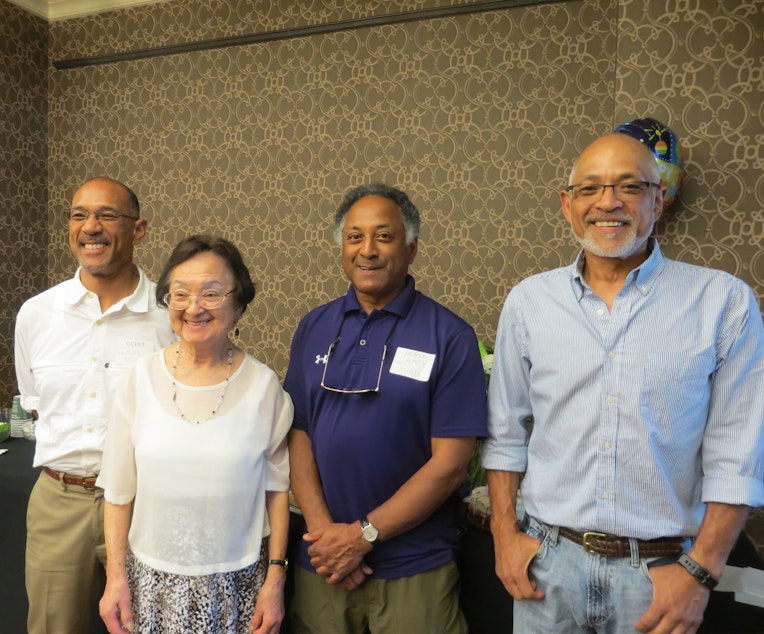Elaine Ishikawa Hayes, 97, civil rights advocate, pioneer in early childhood programs

Our series, Lives Lost, remembers loved ones who have died in the pandemic. You can share an obituary of someone special to you by filling out the form at the bottom of this story.
Elaine Hayes was so full of energy that people who knew her called her the energizer bunny. “She would zip around places, even at her old age,” said Jo Moore, a friend.
Hayes and a group of church friends went on a cruise when she was in her 80s and single. Moore said the friends would check in on her. “But when they go in to check in on her, she was never there,” recalled Moore. “She was the first one off the ship in the morning… and she would come back and tell them all these adventures she’d had. She just outran everybody.”
Moore and Hayes met in 2000, after Hayes’s husband died. Hayes started attending Moore’s church, Shoreline Unitarian Universalist Church. They were also members of the same book club and became good friends. “Book clubs, you know,” Moore chuckled. “You talk about everything, not just the book.”
They became neighbors when Hayes moved into the same retirement community where Moore and her husband lived. Over the years Moore would learn about her friend’s life—a Japanese American woman who was interned in Tule Lake during World War II, who married an African American and raised their mixed race family in Seattle.
In her professional life, Hayes was instrumental in integrated preschools in Seattle and supervised five daycares, said Moore. “She and her husband were both very active in civil rights issues and economic, poverty issues. They were a remarkable family.”
Sponsored
Moore said she admired her friend’s ability to stay positive despite the adversities she’d experienced throughout her life. When Hayes was born in California, the family lost their rice farm because the state passed a law banning Asians from owning property. Her father became an insurance agent, but was hospitalized for tuberculosis. Hayes, being the eldest, had to take care of her younger sisters while their mother worked. Then the war happened, and the family was incarcerated, along with thousands of Japanese Americans.
“There were all these things where she should’ve been, or could’ve been resentful or angry,” said Moore. “I never saw that side of her; I always saw her ‘well, this is a problem to be solved, and we’ll figure out how to do it.”
Producer Alec Cowan composed music for this story.
If you've lost someone in Washington through Covid, we invite you to tell us about them--their story, their passions, and your memories of them.




